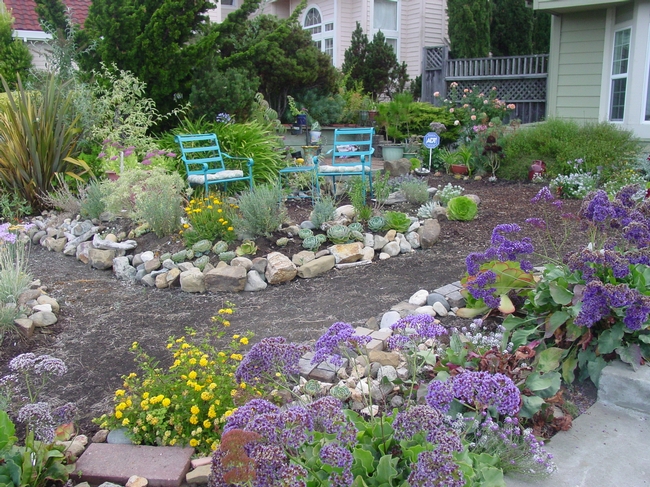- Author: Saoimanu Sope
Before Brent Flory, 22, started bagging fruits and vegetables at his local Stater Bros. Market, he picked them at the University of California South Coast Research and Extension Center in Irvine.
In partnership with Saddleback Unified School District's Esperanza Education Center, an adult transition program that provides independent living and life skills training for students with disabilities, South Coast REC hosts students on its 200 acres of land and introduces them to careers in agriculture.
Flory recalls picking avocados as one of his favorite moments from the program at South Coast, one of nine RECs across California operated by UC Agriculture and Natural Resources. “I picked a huge avocado and got to bring it home. It was the size of a medium pumpkin,” he shared.
Field work doesn't warrant business attire, but Flory said that working at South Coast REC taught him the importance of dressing appropriately for work. In this case, it meant pants, closed-toe shoes, a shirt with sleeves, and sunscreen or a hat if working in the sun.
While program managers hope that participating students would pursue a career in agriculture, South Coast REC is more concerned about providing opportunities for students to gain real work experience in a unique setting. 
“This is the first time I have had the opportunity for my students to work at a job site in the agricultural field. We never really thought of the agricultural industry as an option for our students,” said Esperanza's education specialist, Michael Seyler.
Esperanza's partnership with South Coast REC began in October 2019. Since then, nine participants have been assigned to work at the research center where they help create seedlings, plant and harvest crops, and learn plant management.
Ray Bueche, Adult Transition Program coordinator and Career Start administrator at Esperanza, is proud of the creative energy it took to develop the program and unite partners, crediting Jason Suppes, South Coast REC's community education specialist. “Working with Jason and UC ANR has inspired me to continue to reach for unique partnerships in this field and elsewhere,” Bueche said.
Dylan Shelden, 19, another past participant, said that the program revealed how important it is for him to choose a career that makes him feel happy and independent. “You are responsible for yourself,” he said. “So, don't quit on the first try.”
Shelden currently works at Party City as a store organizer. Even though he prefers working indoors, Shelden described working with plants and being outdoors as refreshing. “Working in agriculture makes me feel good,” he said.
When asked what advice he would give incoming students, Shelden said: “Be kind, mindful, and thoughtful to others.”
“Things are constantly changing at the farm and follow seasonal patterns. Students get to work with different types of produce depending on the season. So many of my students only thought about jobs in retail or food services industries,” said Seyler. “This has opened their eyes to other possibilities.”
The soft skills learned while working at South Coast REC has helped other students secure paid competitive employment during or following the program. It has also inspired program staff like Bueche and Seyler to consider other unique opportunities for their students to connect the skills they have learned on the farm to other types of jobs.
To learn more about the Adult Transition Program at Esperanza Education Center, visit: https://www.svusd.org/schools/alternative-schools/esperanza/about/why-esperanza
- Author: Trisha Rose
A couple years later and now we are both retired. We decide to pull out another mow strip in front and put in some nice perennials and herbs. We are now cooking alot more and fresh herbs are always a good idea. The dogs play in the backyard so the herbs were much safer in the front. Also, we were beginning to think it would be nice to have some plants that aren't as attractive to insects and disease as our roses have proven to be. I was spending a lot of time with my Sunset New Western Garden Book looking up rose disease and pest solutions by now and had begun to notice that many perennials had some pretty nice features.

So the middle strip of lawn between the walkway up to the front door and the driveway eventually got dug out. Since our two dogs love their daily walks around the neighborhood and I am the designated dog walker, I am noticing more what is going on with the neighbor's gardens and appreciate what is blooming and doing well or not. Have I mentioned that it is very windy in the front yard as our street faces the Carquinez Strait. There is virtually nothing to slow down the wind so the plants have to be sturdy enough to withstand both the long exposure to sun and frequent day long winds. These same winds, I suspect, have also played a role in spreading some of our most prevelent rose diseases and pests amongst our neighbors, namely rust, black spot, mildew and the most invasive of all, the aphids. Thank you perennials for entering our lives.
As we planted our newly dug out mow strip, just by luck did we choose a Lantana montevidensis 'Confetti' to anchor this garden area. I can't claim to have studied a book or website to make this decision. The Lantana was just sitting very prettily near the entrance to Mid-City Nursery the day I had chosen to make some plant purchases. This plant has proven to be one of the hardiest and most prolific bloomers in the garden. It has stood up to my trimming and shaping with a vengence. It has become a real stunner as it is now shaped as a small bushy tree with branches that bend gracefully with many blooms. Besides the many people that like this plant, it has attracted Monarch butterflies each year along with bees and many different birds that are attracted by the berries in late summer. We have added many herbs including Origanium vulgare, Salvia officianalis, and Thymus vulgaris. Besides the herbs, we have added Aloe attenuata and arborescens, Coreopsis, and many, many different succulents. This old mow strip has really turned into a joyful garden.

So with success brings confidence. As we shape our gardens we continue to learn what grows well, and looks good. and when it is time to shovel prune an intruder or poor student as in the case of many of those early rose choices. Truthfully we haven't had to shovel prune much, we have grateful neighbors with more patience and know how who have been happy to give new homes to our cast-offs.


